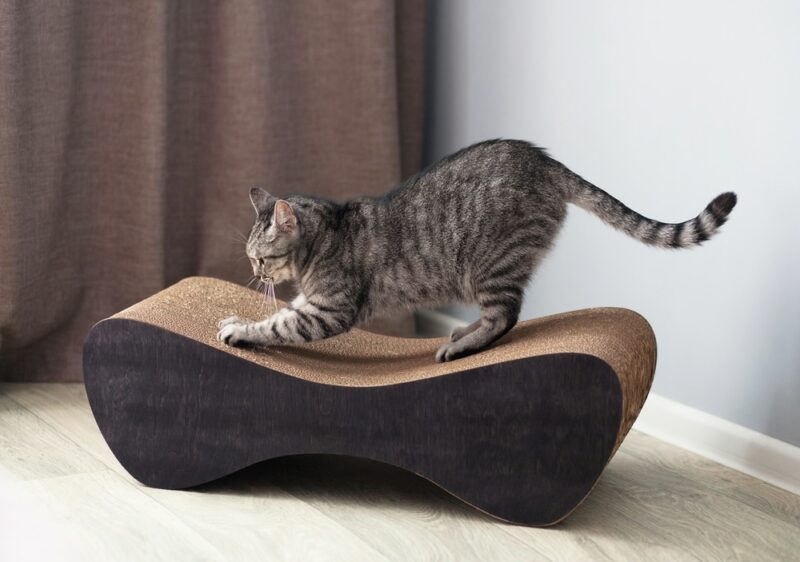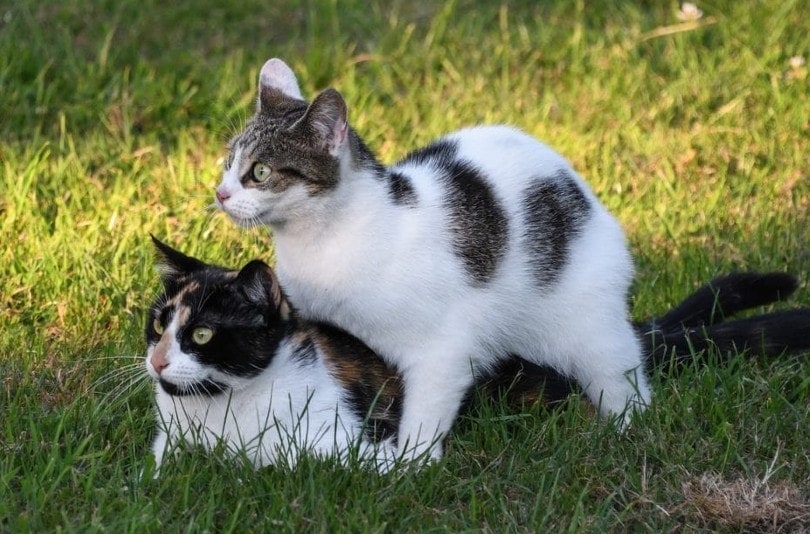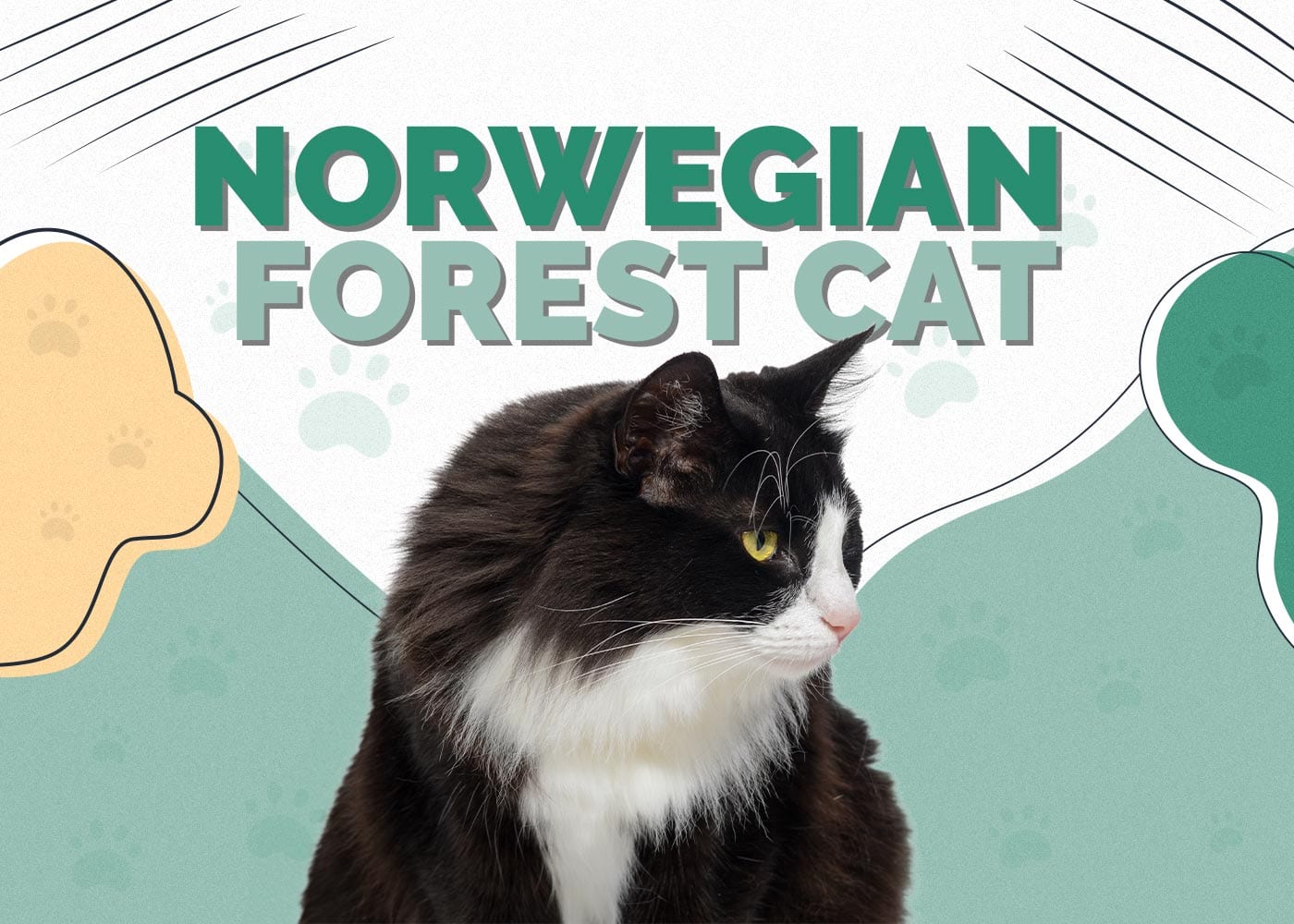Why Does My Cat Chew on Everything? 6 Possible Reasons
Updated on
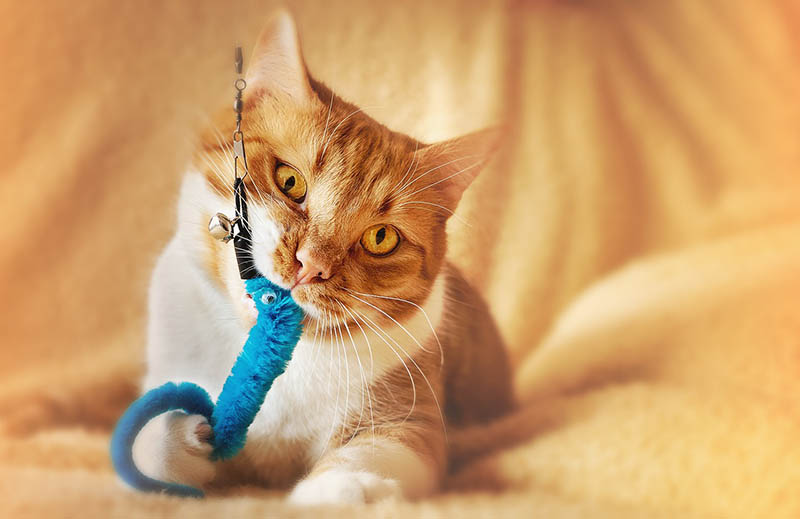
Cats are not known to be avid chewers like dogs are, so situations of obsessive or destructive chewing can be concerning. A feline that chews excessively might be showing signs of an underlying health condition that needs to be addressed. However, some cats simply find it entertaining to chew things that they are playing with, which can be completely normal.
If you find yourself dealing with a cat that seems to want to chew on everything, this article will discuss six possible reasons why.
The 6 Reasons Why Your Cat Chews on Everything
1. Dental and Gum Issues

Dental and gum issues are common in cats, with studies reporting that about 50% to 90% of cats over 4 years old may suffer from it1. Common dental issues in cats include periodontitis, tooth reabsorption, and gingivitis. These issues can be painful for cats, but thankfully treatable and preventable.
A cat with oral pain and itchy gums might find relief by chewing on objects around the home, even if they are not supposed to. However, their excessive chewing could lead to broken or damaged teeth and gums if their underlying dental or gum issue is left untreated.
You should contact a veterinarian if you suspect your cat is chewing from dental and gum issues. Appropriate treatment can help stop your felines chewing behavior and provide them with appropriate pain relief. It is recommended to closely monitor your cat’s dental and gum health and ensure that any dental issues are being prevented.
2. Anxiety
Some cats are anxious chewers and chewing could be their way of relieving their anxiety. Cats can become anxious for several reasons, from something as simple as a small disruption in their environment to chronic pain conditions. Their anxious chewing can become an obsessive habit that could destroy the home.
The best way to help an anxious chewer is to take them to a veterinarian to determine the cause of their anxiety. If their anxiety is caused by pain or an underlying health condition, the veterinarian will help you find an appropriate management plan for your cat. Once a feline’s anxiety issues are being managed, their anxious chewing habits may subside.
3. Boredom
Cats can become bored if they are not kept mentally and physically entertained. This can cause them to look for other outlets to try and ease their boredom, such as chewing on objects around the home.
If this is the case, it is a good idea to redirect their attention to cat toys that are safe for them to chew. You should also look into ways of keeping your cat entertained through daily exercise, interactive toys, and rewarding challenges.
Although most felines tend to lounge around during the day, it doesn’t mean that they do not need entertainment. A bored cat may get up to all sorts of mischief, including destructive chewing or furniture-scratching habits.
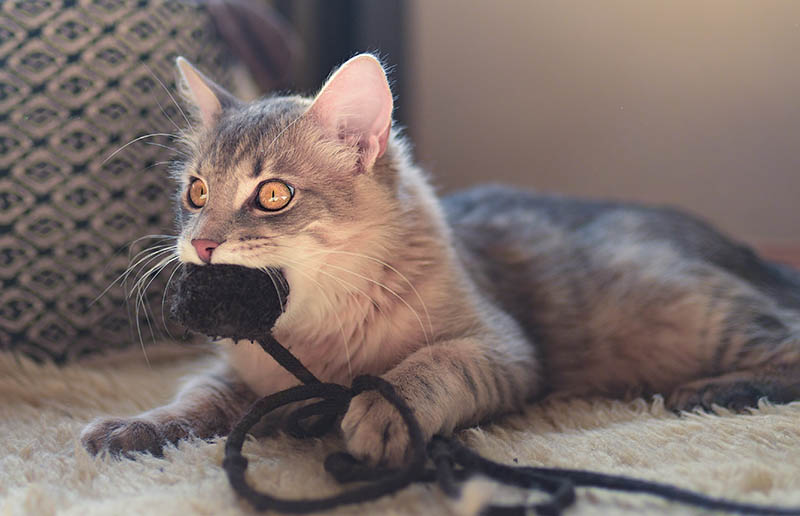
4. Pica
If you find that your cat is chewing and eating inedible objects, they could have pica—a complex behavior with numerous underlying causes. Pica can be dangerous for cats as they are exposed to potentially harmful toxins and gastrointestinal obstructions from chewing and eating inedible objects. This disorder is not very well understood in felines, but it is thought to bring a sense of reward to cats that fuels the behavior.
A cat suffering from pica not only destroys and ingests some of your belongings but puts their health at risk. This disorder needs to be diagnosed and treated by a veterinarian.
5. Obsessive-Compulsive Disorder (OCD)
Although it is a rare diagnosis for most cats, their unusual chewing behavior could be the result of obsessive-compulsive disorder (OCD).
Cats with OCD do not just display repetitive behaviors, but rather ones that are done excessively and inappropriately instead of their normal behaviors. It is usually associated with anxiety disorders, and most cats with OCD require lifelong treatment with the help of veterinary experts.
A cat with OCD may excessively chew and lick objects in the home for no apparent reason and sometimes at the expense of their health. They might stop grooming themselves or eat normally to compulsively chew instead. However, an underlying medical condition such as gum or dental issues should be ruled out first by a veterinarian.
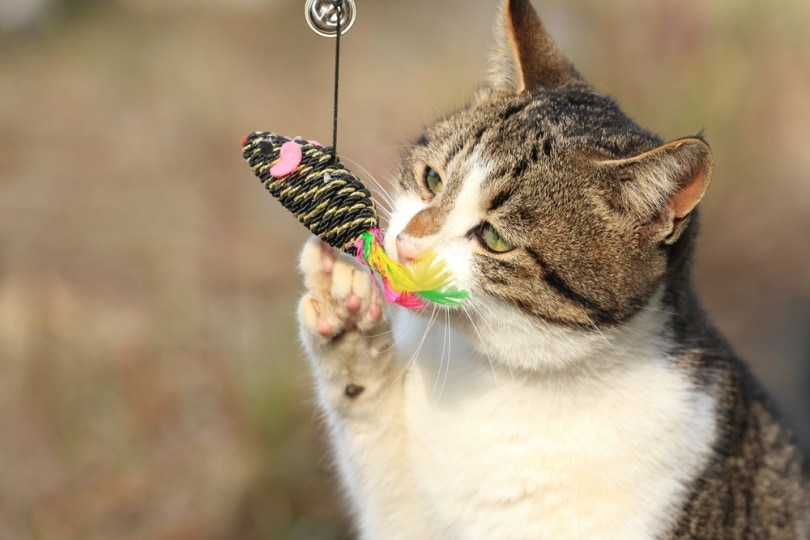
6. Teething
Cats go through two teething stages. The first stage occurs at about 8 weeks old, and the other stage is between 3 to 7 months old. You might notice behavioral changes in teething kittens, such as a desire to chew on objects like hard furniture. This is because teething can be a painful process and their gums are likely irritated.
Chewing can offer kittens a bit of relief from discomfort, and unless they have appropriate toys to chew on, your belongings could be used in replacement. Teething kittens should be offered textured chew toys that are safer and more effective than random objects around the home.
Conclusion
Cats can start chewing everything around the home for various reasons. Some common reasons include dental and gum issues, boredom, and teething stages for kittens. Chewing is usually used as a way for your feline to alleviate any mental and physical discomfort they might be feeling. Although some reasons could be simple and easily treated, others can be more serious and require veterinary treatment.
You should always monitor the objects your cat chews, as many objects around our home could be dangerous for cats, such as electrical wires. Their attention should be redirected to appropriate chew toys instead. Any abnormal and excessive chewing should be brought up with a veterinarian.
Featured Image Credit: Dorothe, Pixabay

